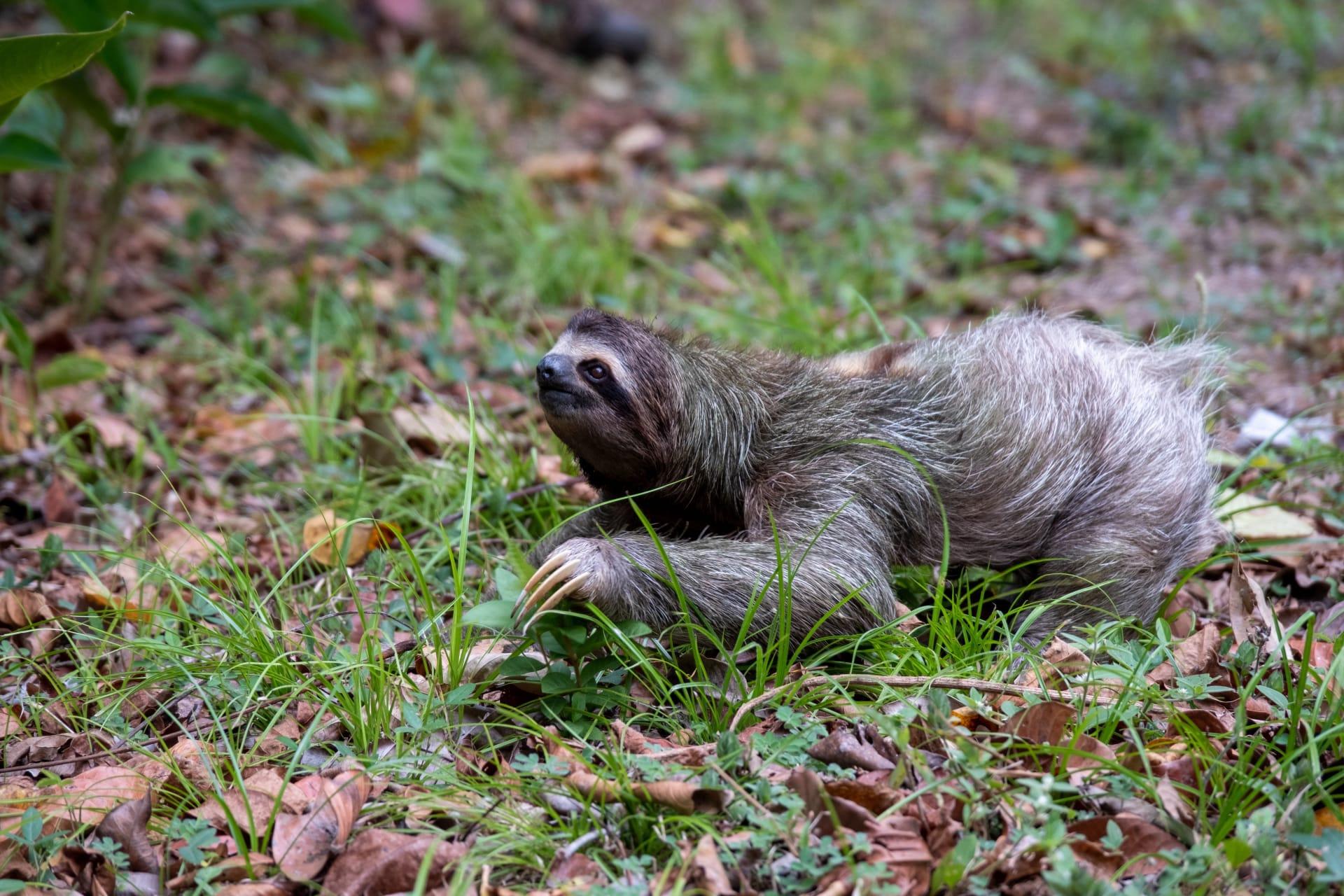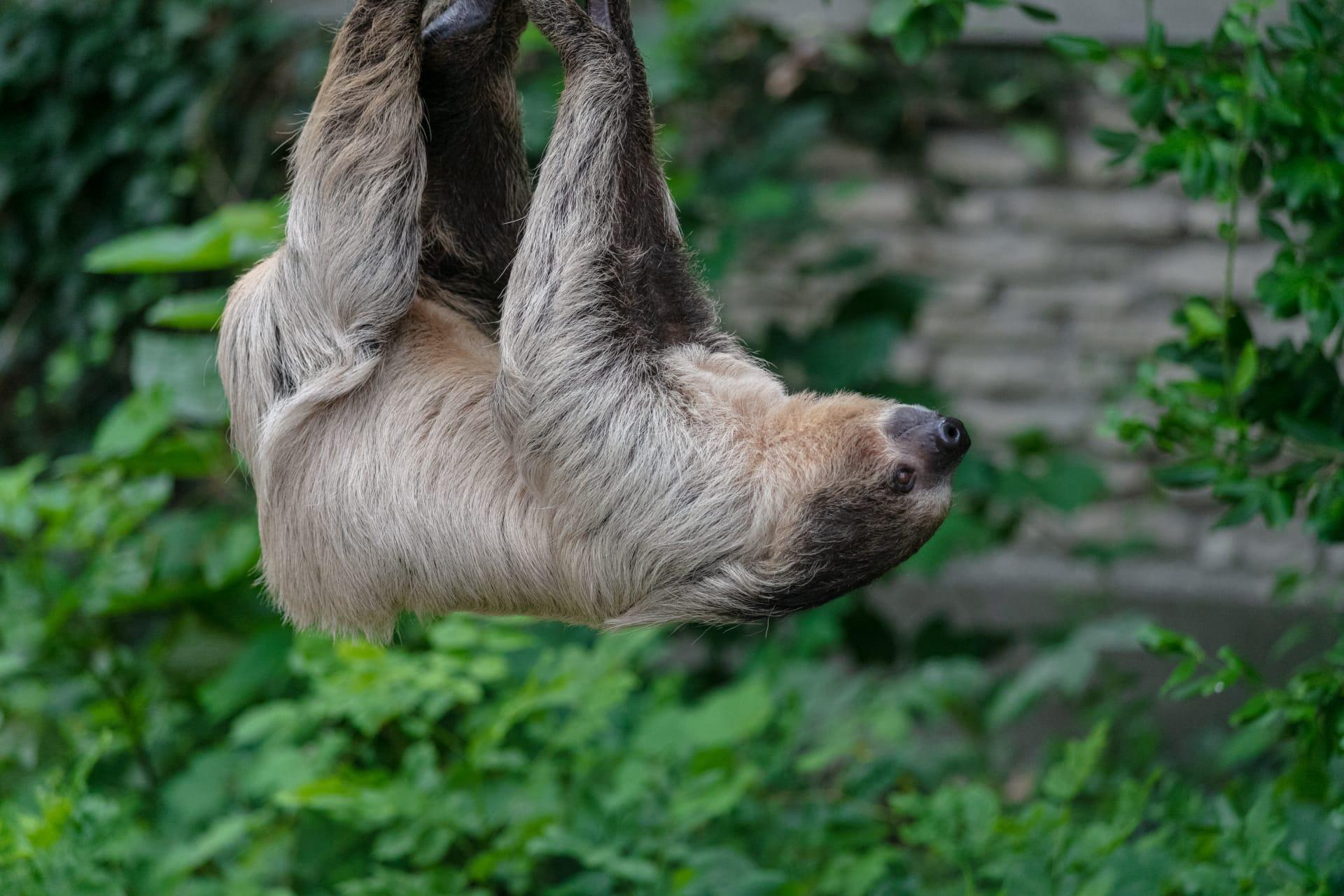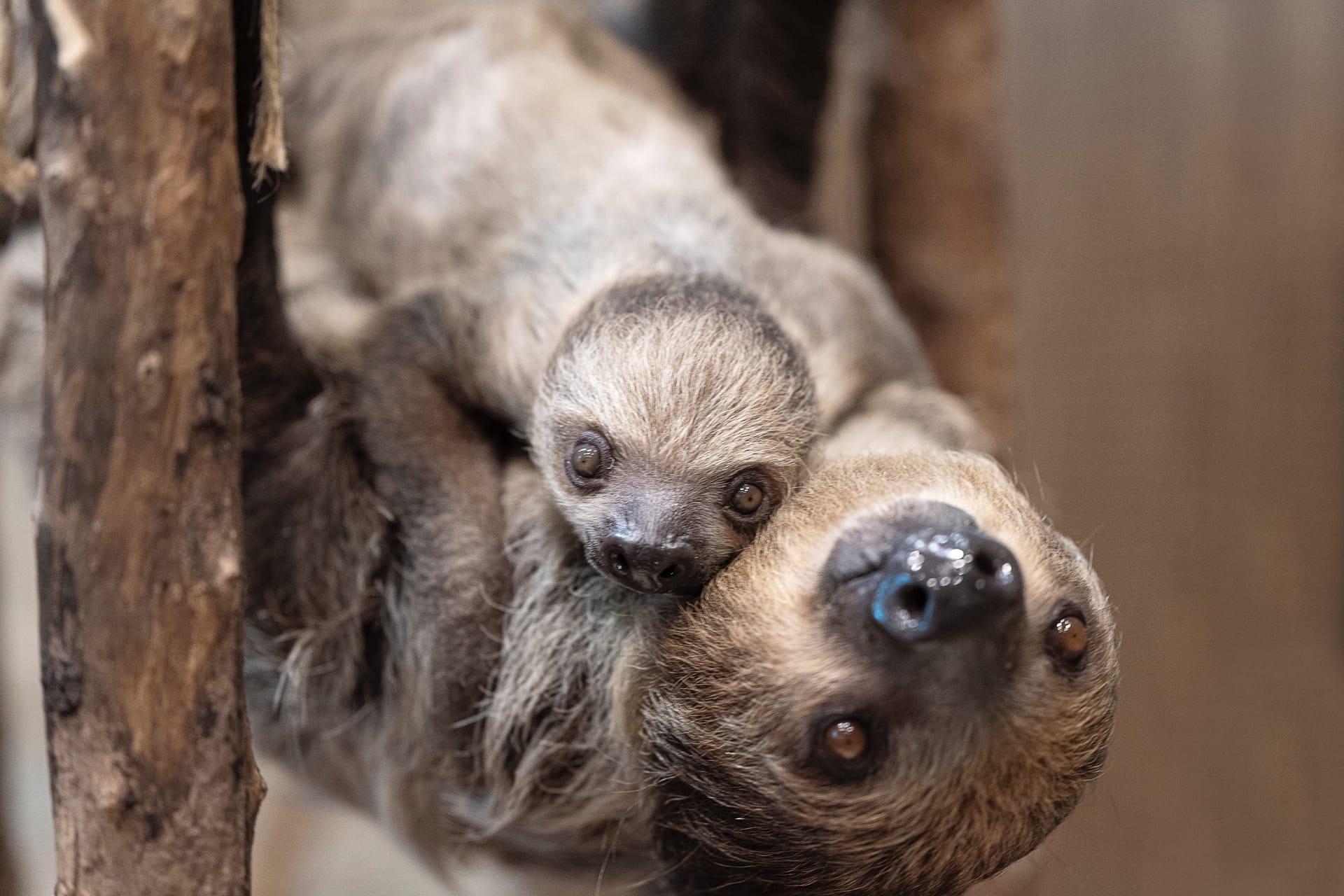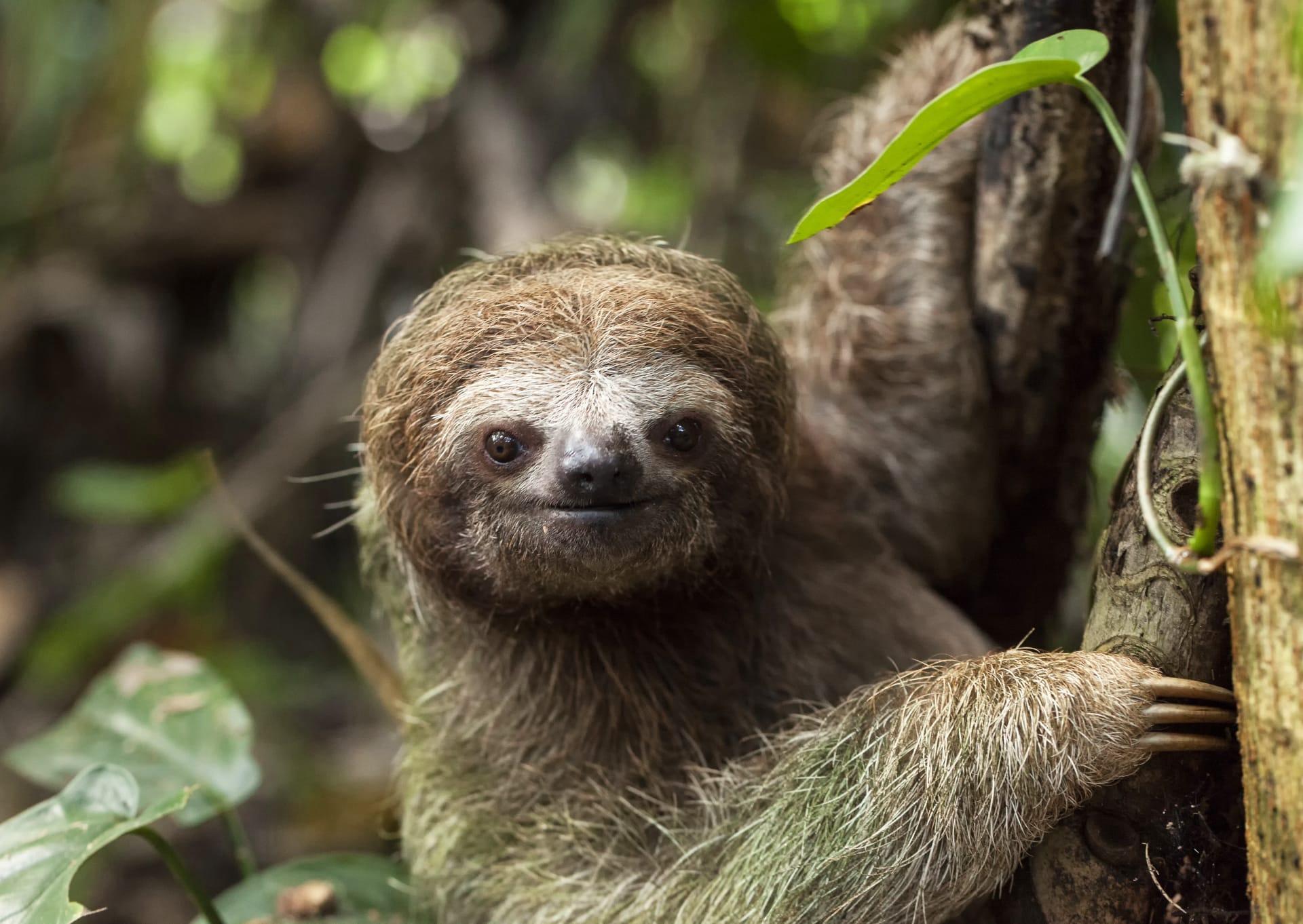Sloth Trivia
- Home /
- Trivia Question /
- Animal /
- Sloth Trivia
1
Question: How slow are sloths, exactly?
Answer: Sloths are incredibly slow, moving at an average speed of just 0.03 miles per hour on the ground. This sluggish pace is due to their low-energy diet of leaves and their slow metabolism, which conserves energy but limits their mobility.
Question: What do sloths eat, and how does it affect their lifestyle?
Answer: Sloths primarily eat leaves, which are low in nutrients and energy. This diet requires a slow metabolism and low-energy lifestyle. Consequently, sloths spend about 15 to 20 hours a day sleeping, and their digestive process for one leaf can take up to a month!

2
Question: Are sloths really lazy, as commonly thought?
Answer: Despite their reputation, sloths are not lazy but rather energy-efficient. Their slow movements and extensive rest periods are adaptations to their low-calorie diet and help them conserve energy.
Question: Do sloths sleep hanging upside down?
Answer: Yes, sloths sleep while hanging upside down from tree branches. This unique behavior helps them blend in with the canopy and avoid predators, as their body posture and stillness make them look like part of the tree.

3
Question: How long can sloths hold their breath, and why?
Answer: Remarkably, sloths can hold their breath for up to 40 minutes, surpassing even dolphins. This ability stems from their ability to reduce their heart rate and conserve oxygen, an adaptation for their aquatic movements and a defense mechanism against predators.
Question: What is the lifespan of a sloth in the wild?
Answer: In the wild, sloths can live for about 20 to 30 years. Their survival relies heavily on their camouflage and slow movements, which minimize detection by predators.

4
Question: Can sloths swim?
Answer: Yes, sloths are surprisingly good swimmers. They use a dog-paddle style and can move three times faster in water than on land. This skill is vital for crossing rivers and streams in their rainforest habitat.
Question: How do sloths contribute to their ecosystem?
Answer: Sloths play a crucial role in their ecosystem by aiding in nutrient cycling. As they move through the canopy, they disperse seeds and help with the growth of new vegetation. Additionally, their fur hosts a variety of organisms, including algae, beetles, and moths, which contribute to biodiversity.

5
Question: Do sloths have natural predators?
Answer: Yes, sloths face threats from predators like jaguars, eagles, and large snakes. Their primary defense is their camouflaged fur and slow, deliberate movements, which help them go unnoticed in the rainforest canopy.
Question: How do sloths care for their young?
Answer: Sloth mothers are nurturing, carrying their single offspring for about six months after birth. During this time, the young learn vital survival skills, including finding food and navigating the canopy, by staying close to their mother.